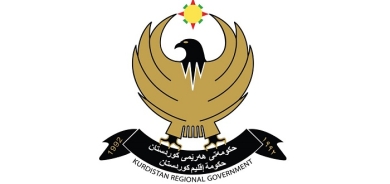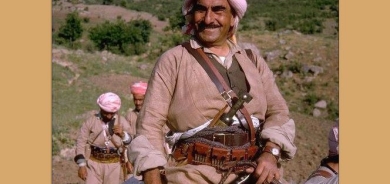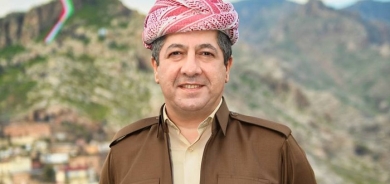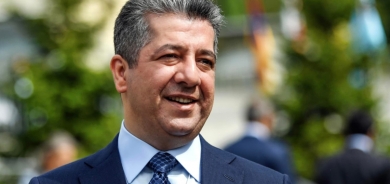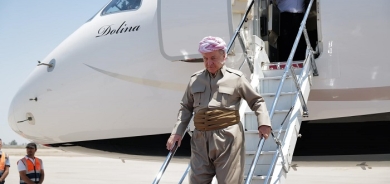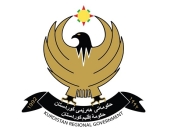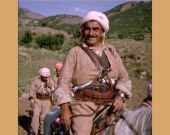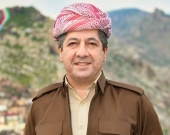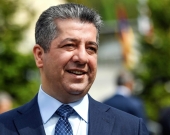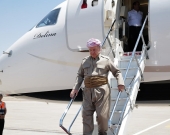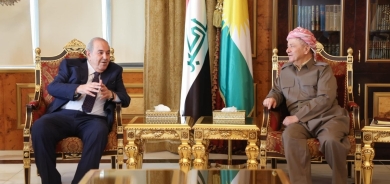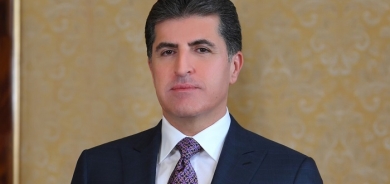Syrian Regime Getting more Complicated But still too far to fall

Regarding these questions we contacted and asked Professor Dov Waxman, who is an associate professor of political science at Baruch College and Graduate Center of the City University of New York and he is also specialist in International relations and Middle East politics, Prof. Waxman despite his considering the Arab Spring revolutions as a transitional point for the area, but meantime he mentions that Syria and Libya's situations are different and cannot be compared with each other, and exclusively to GULAN magazine he responded to our questions as the following: “Current things across the region in the last year I think fundamental transient point in the politics of the region, after decades of authoritarian rule people have been perfectly denied a vote in that government, and I think now the demands for popular rule and to have that voices heard in government is acceptable across the region. So I think there is no turning back for what has been imaged over the past years in terms with demands for popular participation and for the public to finally be able to fight their rules so I think the fundamental question that Assad's regime across the region is whether they will recognize these demands and submit to it, or whether they resist it. We've seen some regimes at the beginning voluntarily to recognize these demands, this happened in Morocco and Jordan, as regimes are beginning to reform themselves under the weight of popular expectations for greater representation. I know it seems on the other hand regimes that have tried to resist these demands, with resisting these demands have increasingly turned to violence, Yemen is one example of this, Libya in the past was one example, and today the biggest example is in Syria. The Syrian regime seems to be abide by the beliefs that essentially it can instill enough fear in Syrian public that it can paralyze the Syrian public back into submission, and I think personally that is the wrong belief, not only morally wrong, but I think ultimately it will spell the end of Syrian regime. I think there is a critical difference between Assad's strategy in Syria and what Gaddafi did in Libya. Assad has to rely upon some external support; Assad's regime depends not only on the support of Iran, but also Russia and to some extend China as well. I think that limits the amount of violence that the Syrian regime can deploy to protect itself, so I think the Syrian regime is going to avoid the all cost this escalating into a larger a war, so I think by sort of these actions that might be the outcome. I think the great danger is a civil war in Syria, but I think the future really depends on this point now, on whether the Middle Class in Damascus stay unilateral. I think at some point the near future realize that economically there is no future for them in the country as long as Assad stays in power, so my hope is that the effect of economic sanctions in Syria will bring away that very important support that they had at the moment for the Business Class, and that will prevent an escalation of violence. If that will happen, Syria economically is able to stay to stay despite the impact of international sanctions then what we will see is not so much escalation into a full war, but it comes to continuing level of violence by the regime and its supporters that will go on for a long time, as the Syrian regime is too strong to be able to thrown but not strong enough to be able to completely quit down the opposition.”
Syrian Opposition should rely on itself;
As most of the experts mention that we should look forward to international community to end Assad's regime by military means, one of the experts, whom we contacted regarding this report, refers the reason for that because in Libya there was Benghazi, which Syria lacks it, that means Libya's opposition had good and tough attitude, but opposition in Syria doesn't have such an attitude even in Aleppo or Damascus, regarding this point, we contacted and interviewed Professor Joshua M. Landis who is Director of the Center for Middle East Studies and Associate Professor of Middle Eastern Studies at the University of Oklahoma, and international specialist on Syria, in his responds to GULAN magazine he mentioned: " I think there is a big difference between Libya and Syria, the main difference is that there is no Benghazi in Syria yet, and the foreign international community seems to have very little interest in becoming militarily involved in Syria. This means that the Syrian opposition, unlike the Libyan opposition, will have to overthrow the Assad regime on its own with little help from external military. The Syrian opposition is expecting that Syria will reach a distinct point soon, in 6 months or a year, and that the opposition demonstrations will succeed in causing major splits within the military and business community. I'm not sure if this scenario is realistic; we saw in Iraq that foreign sanctions and uprisings by Kurds and Shiites in 1990s did not overthrow the regime, so it is unclear whether the opposition will be able to succeed in overthrowing the Assad's regime in near future". Professor Landis is specialist and deeply investigates in the situations; he doesn't find it easy to see the end of Assad's regime easily.
We also interviewed Professor Richard W. Bulliet, who is specialist in Middle Eastern history and director of Middle Eastern studies in the University of Columbia, and responded exclusively to GULAN magazine as: " The Syrian army is much stronger and more professional than the Libyan army, and Al-Assad still enjoys substantial legitimacy deriving from his opposition to the United States and Israel. If economic sanctions don’t cripple the country—and I don’t think they will given Russian and Chinese reluctance to act—I think Al-Assad can last for some time. Perhaps long enough to have events in Syria overtaken by crises elsewhere, possibly in Egypt. I think the international community will indeed just stand on the sidelines watching whatever transpires. The risk of intervention creating an even more complicated and negative situation is too great to attempt. The international community holds to the notion that specific violent or murderous acts are the responsibility of the individual actors or their agencies. We have already seen specific Syrians put on sanctions lists. This is likely to continue and expand. But I don’t expect anything greater.
The Role of Turkey in the Syria's complicated situation:
The key role in the Syria's situation that can play an important role in changing the whole situation is the separation of Middle Class, Business Class and the wealthy Class from the Assad's side, unless this takes place, the economical sanctions by the international community will have no impact on the situation, so the whole story is in the hand of Turkey. So, we can say Turkey is the country which is expected to play the major role in this equation, regarding this point we interviewed Professor Richard Carl Hermann, professor of political sciences in Ohio University, expert of international relations and specialist on Middle East security, politics, crisis and studies. Exclusively to GULAN magazine he responded as "Turkey is playing an important role, but the final decision and the final role is going to be by Syrians, I doubt the Turkey to use its military to intervene in Syria, I think the cost is simply too high, we haven't seen any evidence that the Syrian military has collapsed since that chaos has broken out, unless a genocide starts there would be no legal basis for intervention, even in the UN right to protect which is not completely recognized by most, there will be no legal justification for military invasion of Syria short in protection of imminent genocide and that is not occurring in Syria just now. So, my guess is Turkey will complain and might put some forces on the southern border to manage the immigration issue and people coming out of Syria flee into Turkey that is obviously a very serious social problem for Turkey, and I think it will join the most of the World in putting very strict sanction on Syria in the hope that the economic cohesion will bring the regime down and will change the situation, but I will be surprised if Turkey begins the use of military forces, but frankly NATO will bring its military forces in Syria, my guess is neither Russia or China will support that kind of activity in the UN. Again, Syria is a very different case it seems to me than in Libya, Syria is a much more powerful country and has powerful friends than Libya, Libya was isolated alone, and Syria is mostly isolated but not completely. I think that there are many differences between Libya and Syria, I don't think that the opportunities for the West intervene in Syria are nearly so clear, there isn't obvious armed rebellion that doesn't control or have the country the way in Libya, I also think we haven't heard as clearly from other Arab States, only Saudi Arabia and also I think Bahrain has made noises that they were in favor of intervention in Syria, Turkey is beginning to talk in that way, but in the Libyan case the Arab League even gave a positive nab that ''it was ok". I think the West will be more reluctant to intervene in Syria because the Arab world I think they fear it will react differently. Also Syria is a much bigger country with much bigger population and more powerful army so the war will go quite differently than in Libya that had a small army and a very weak regime, also I think there are very big differences, the Baath party and the Assad network in Syria I think is much more institutionalized than has support for more of the minority communities as well as parts of army and security forces in a way that Libya was of one man, a dictatorship, without that sort of institutionalized network. So I just see many differences, one last point; I think at this point there have been 3000 casualties killed by the government of Syria. So I think using the word "massacre of a nation" is pretty extreme language for what we've seen so far, so what I think is still the case of Syrians, then the case of Syria for a long time is the small minority community rule and the majority in Syria might prefer a Sunni led government rather than Alawi that have not been replaced for 40 years, and if this is the beginning of their movement to change that situation that would be a positive thing, but so far it is so difficult to tell how much broad base mass support there is".
Within the same title, and regarding the role of Turkey in the problem, the professor Joshua Landis also mentioned: “Turkey will only have a major influence only if it decides to invade Syria, or to arm the opposition, and Turkey has not made either the decisions. Turkey could also impose economic sanctions on Syria which has not done yet, it has said it is going to do something on this launch, but it has yet to do it. Although Turkey has a long border, 500km border with Syria, gone to war with Syria will be very destructive, from Turkish point of view. Will it be able to get out of it? Will it worth it? Do they want to go into war with Syria? I don't think, Syrian army is still strong, and it can still make a lot of trouble for Turkey. The Syrian opposition has yet to establish a leadership, the national council, which recently has not nominated the president or an executive community, they haven't agreed on an alternative to Assad, maybe now it is not necessary, but it is not re-assuring to anybody who wants to help opposition. And, we've seen different branches of the opposition. There are important splits, and the Kurds are number one, the number of Kurdish opposition parties have refused to join the opposition national council, because they weren't invited and because the national council has not offered to assure autonomy and national recognition to the Kurds in Syria.”
Assassination of Opposition activists:
Kurds of Syria is one of the main components of Syria that has not only been oppressed by the Syrian regime, but has also been deprived from the right to identification. The more dangerous situation is that even the opposition of Syria doesn't recognize the rights of the Kurds, this is while most of the observers predict military coup for Syria and it is expected that one of the Sunni military Generals may take Assad's place. Regarding this issue, in his responds to GULAN magazine, the Professor Richard W. Bulliet also mentioned: "Recognition is a diplomatic weapon that is frequently played. For a long time, for example, for purely ideological reasons, the United States would not recognize the People’s Republic of China. If Al-Assad’s threat is real, shifting recognition from Al-Assad to the Council would mean withdrawing Ambal-Assadors from Damascus and interfering with trade and tourist relations. Al-Assad may think twice before he takes the step of severing relations, but it is more likely that key members of the international community will think twice before recognizing the Council. Al-Assad may be bluffing, but the bluff will probably work. If there is a change in the regime, the greatest likelihood is that Al-Assad will leave and his place will be taken by a general, possibly a Sunni but more likely another Alawi. In either case, relations with Israel, the Palestinians, the rest of the Arab world, and Iran will probably be unchanged. I believe the balance of power lies with the top military officers. They may force Al-Assad out as their counterparts did with Mubarak in Egypt, but they are not likely to relinquish the reins of power.”
But what the Syrian regime is implementing without revising the decision is the killing of the opposition activists, the Professor Waxman thinks that the International community cannot do so much against Syria regarding this point, and in his responds to GULAN magazine he also mentioned: " Unfortunately, there are many regimes around the world, and Syria is not the only example that have done political assassinations against their own opponent, there are many countries around the world that do this. And there are many countries around the world that basically are in the position that they should not interfere in other countries' domestic businesses. What you do within your border with regard to your own citizens is your business that is an attitude that still prevails in parts of the world, for example in China. So I think that allows the Syrians due to the sense that they can carry out this kind of behavior hadn't basically got away with it. However, Syria have engaged in these kind of activities, political assassinations and violent against its own citizens, it is violent itself and it is becoming an international prior and I think that is a change, I think Syria historically has always been careful to remain in international community and to avoid international isolation and regional isolation. What we've been seeing over the last month is a growing regional isolation of Syria with even Syria's allies, like Iran have made some critical statement and certainly has its international isolation. So I think its position in the international community is rapidly deteriorated. And I don't know if I would describe them as the international community is silent, I think the UN and Leading cause have repeatedly some words to the Syrian regime, they've issues reported and made statements, so verbally they have tried to keep up the pressure on the Syrian regime they also have instituted various kinds of sanctions. I think ultimately international community, not only in Syrian case, in the case of other regimes that target their own citizens, the international community cannot do so much when it comes to stop the regime's violence against its own nation. Another example for years in the case of Sudan, if you think about the Sudan's government's action in the Darfur's region of Sudan, so it seems that time and time again the international community can only put a lot of pressure economically on the regime, but not always militarily ready to intervene. Most regimes still think that they can ignore the international community and retain large important ally as Syria still does in the case of Russia, Iran and to a less extend China, that they can basically ignore the role of International Community. So I think the real challenge is not to really so much on the International community as a whole, but particularly the Russians. Will Russia continue to back this regime? Will Russia continue to domestically and economically to provide support to the Assad regime and it continues to carry out this massive violence against its own citizens and continues to be isolated in the international community. I think if Russia re-evaluates its support to Syria, then I think China will also re-evaluate its support for the Syrian government, and I think that will be a very important diplomatic challenge to the Syrian regime. So I think the international community, particularly the West and United states, doesn't have very much ability to do any much more than what so have been done to affect the Syria. There is a great danger that because there is no way in which the International community is going to intervene directly in Syria to prevent the massacres that have already been taking place. I think there is a likely that basically they will stand by and watch the events taking place in Syria and hope that the things don't escalate out of control. I think the only international pressure that could come will come from the Iranians and from Russia, from the Syria's major allies, the rest the international community have already imposed sanctions, there is little more they can do now, of course UN and the security council have failed to impose sanction upon Syria, if that happen that is one more instruments the international community could deploy, but the fact is the Syrian government knows that the International community is not going to do in Syria what they made in Libya, they know that there is no desire on the part of EU or the US for any kind of military intervention in Syria. So I think that does give them some sort of confidence that they can act with a degree of impunity and that is the major problem.”
The Syrian opposition is still not reliable:
It has been more than 40 years the Syrian regime hasn't gave any chance to the existence of any political party other than Baath party which is the state and ruling party in there. So as you look at the condition of the opposition, still they don't have any person to lead them and to be dealt with as the succession of Assad, and even Turkey that sometimes visits their meetings, but the opposition is suspicious about Turkey's role and they think that Turkey is playing on different paths in the same time. Professor Richard W. Bulliet expressed his views regarding this point as: “Turkey may play a useful behind-the-scenes role even while it is criticizing Al-Assad. We have recently seen this with Israel where despite Erdogan’s anti-Israeli rhetoric, Turkish diplomats apparently helped arrange the prisoner swap between Israel and Hamas. Turkey and Syria have important common interests that make it difficult for Syria to ignore Turkey’s view of this crisis.”
This view of Professor Bulliet unveils that maybe the shaping of Syrian opposition council will be just for having negotiations with Assad's regime, not for taking the place of the regime. Regarding the probability of the opposition council to take the authority, professor Joshua Landis viewed his perspectives and responded to our questions as: " They are totally two different situations, there haven't been defections on the scale as there were in Libya were major top people in various ministries, the foreign ministry and the military defected from the regime within the first weeks, and now we're up to finish the 7th month of this uprising, there have been defections but in the low levels of military and nobody from the top ranks of the government has defected yet. The government has stayed united, the military has stayed strong and this presents the opposition with very difficult task that has itself, and the opposition is not as united and doesn't have a clear leadership as it should have, and it need to develop that in the coming month. But, we can see this problem most obviously with the Kurdish and Arab opposition elements who are not united, even though Mashaal Tammo was assassinated, it is not clear that the Kurds will change their strategy. If the regime changes and it is unclear how or when it is going to happen. It will obviously have a very big effect on the regional policy. The Shiite Alawi dominated regime should be replaced by Sunni regime that is dependent on Saudi Arabia and United States and Turkey. There will be a major change, Syria will become an ally to Saudi Arabia against Iran, and it will turn against Hizbullah, possibly. And of course it will present itself as a counter to Iraq, which is now allied with Iran.
Translated by: Sheban Ferhad

